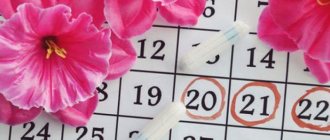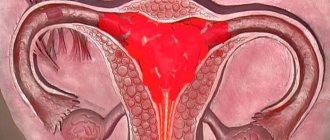About the drug
Jess is an oral contraceptive that has a complex effect on the body. Under the influence of the drug, the functions of the reproductive system are inhibited. The production of cervical fluid decreases, and ovulation does not occur because the egg does not mature.
Hormones prevent the thickening of the endometrium, so even if the egg is fertilized, it is not able to attach to the walls of the uterus, and discharge during menstruation decreases. Depressed ovarian functions prevent the production of estrogen, which is why Jess is used in the treatment of hyperestrogenism and endometriosis.
What happens in the body when taking birth control pills
The main effect of contraceptives, including Jess, is to eliminate favorable conditions for successful fertilization. The medicine is taken by women who are not currently ready to have a child.
Contraceptive pills contain a large amount of female hormones. All components affect the performance of the ovaries. The medication slows down ovulation or completely eliminates it.
Under the influence of medications, natural secretions change. For this reason, normal sperm invasion for successful fertilization is not possible.
The lining of the uterus becomes thinner when taking medications correctly. The fertilized egg is not able to attach normally.
Birth control pills have the following effects:
- action on the ovaries to prevent ovulation;
The drug prevents ovulation
- effect on natural mucus to prevent the advancement of germ cells;
- influence on the formation of the endometrium to exclude successful attachment of the fertilized egg.
After starting to take such medications, menstruation changes.
Reception features
One package of Jess contains 28 numbered tablets; use should begin at the beginning of a new cycle. Protection against unwanted pregnancy appears the first time you use the tablets. Therapy occurs strictly according to the instructions - each tablet differs in the content of active substances. The last four tablets contain a minimal amount of hormones that signal the onset of menstruation.
Do not violate the drug dosage regimen. If menstruation stops, it means that the girl took the pills irregularly. Violation of the scheme leads to problems in the functioning of the digestive system, a decrease in the effectiveness of contraception, and pregnancy is possible. Symptoms of skipping appear within 4 hours, since the main components are eliminated from the body.
Excessive alcohol consumption weakens the contraceptive effect. If a girl has drunk a large amount of alcohol, the next week of taking the drug must be accompanied by the use of mechanical contraceptives.
Pharmacological action of the drug
Jess is a hormonal contraceptive pill. They have antimineralocorticoid and antiandrogenic effects.
The main active ingredients of Jess are drospirrenone and ethinyl estradiol. They are responsible for regulating the menstrual cycle. When taking the drug correctly, the risk of possible unwanted pregnancy is only 1%.
Many representatives of the fair half note that after taking Jess, their pain during menstruation decreases, the amount of discharge decreases, which practically eliminates the risk of developing anemia.
Epidemiological studies have been conducted and it has been found that combined oral contraceptives reduce the risk of developing endometrial and ovarian cancer.
The contraceptive effect is created by three protection factors:
- At the first stage, the pills suppress the ovulatory process in a woman;
- The second stage involves changes in the cervical mucus, which subsequently interferes with the “life” of the sperm in the female body;
- The final effect is aimed at the functional layer of the endometrium. Jess modifies the structure of the uterine mucosa, so that the fertilized egg, if conception does occur, has nowhere to attach. As a result, the fertilized egg dies and the pregnancy is canceled.
In addition, Jess tablets are designed in such a way that they prevent weight gain and the appearance of edema associated with fluid retention caused by estrogen. What else does a woman need? And protection against unplanned pregnancy, and sort of like a hormonal drug, but without the risk of gaining weight.
Indications for use of Jess:
- protection from unwanted pregnancy;
- contraception and treatment of acne (acne);
- protection against unwanted pregnancy and severe forms of PMS.
Contraindications:
- hypersensitivity to the active ingredient;
- thrombosis (venous and arterial);
- uncontrolled arterial hypertension;
- liver failure in severe or acute form;
- pregnancy and lactation period.
Attention: the drug should not be taken by smoking women over 35 years of age!
Contraindications and side effects
The list of contraindications must be studied before starting to use any drugs, especially hormonal ones:
- pregnancy, lactation;
- chronic pathologies of the liver and kidneys;
- nervous system disorders;
- hormone-dependent tumors;
- diseases of an inflammatory, infectious nature;
- diseases of the cardiovascular system;
- diabetes;
- poor blood clotting.
If a girl ignores contraindications and the dosage regimen, she may experience the development of side effects:
- pain in the lower abdomen;
- disruption of the digestive system;
- migraines, loss of balance;
- deterioration in performance;
- sleep problems;
- nausea;
- violation of vaginal microflora;
- chest pain.
How Jess changes his period
While taking Jess, the discharge during menstruation may differ significantly from previous ones. Menstruation when taking Jess undergoes the following changes:
- The active components of the drug inhibit the functions of the ovaries, preventing the production of estrogens. The middle of the cycle is not accompanied by ovulation or thickening of the endometrium. With the arrival of menstruation, the amount of mucous shed decreases.
- Menstruation after Jess takes on a brown tint. This happens due to an increase in blood viscosity. Brown discharge is usually observed in the morning after waking up, when the woman has been in a horizontal position for a long time, so there is less opportunity for menstruation to pass;
- A woman may feel anxious if her period starts early or late. However, doctors say that there is nothing dangerous if this condition occurs for the first time 2-3 cycles from the moment you start taking the medication, when the reproductive organs adapt to the flow of hormones. Abrupt withdrawal from the pills is not recommended - this may cause spotting or severe bleeding.
Jess and the nature of menstruation
First of all, it is worth noting that you should start taking Jess tablets only as prescribed by your doctor. After all, he selects oral contraceptives taking into account all the characteristics of the body and all contraindications. A properly selected product is the key to a woman’s health.
The first months of taking contraception may cause slight deviations from the norm in the menstrual cycle, and this is natural. The whole point is that the body is rebuilding to a new functioning and it needs time to recover. However, all accompanying symptoms should not cause anxiety in the woman or any discomfort. In addition, after three courses of taking Jess tablets, everything returns to normal.
When taking oral medications, your periods may change the nature of your discharge.
This is due to the action of the drug:
- Quite often, after Jess, menstruation is scanty compared to the usual discharge;
- The color of menstrual fluid can vary from ordinary red to unusual brown.
Effect on PMS
The use of the medication can reduce the symptoms of PMS after 1-3 courses of use. It all depends on the previous activity of the ovaries. Over time, the body will get used to the new regime, and the woman will notice significant changes:
- The hormones included in the drug prevent excessive oiliness of the epidermis and the formation of acne. Thanks to this ability, Jess is prescribed to teenage girls to combat acne.
- Thanks to its ability to reduce the contractility of the uterus, Jess reduces or completely eliminates pain during menstruation.
- The drug inhibits the activity of corticoids, which prevents the accumulation of fluid, eliminating swelling.
When to expect your period after Jess
When menstruation begins, then the use of the medication begins. This technique allows you to even out the cycle up to 28 days. Your period should start within the first four days after using the last white pills.
Discontinuation of the drug may affect the duration of menstruation (7-9 days). They will become scarcer and take on a darker shade. After a certain period (depending on the individual characteristics of the body), the ovaries will begin to produce estrogen, which is responsible for “normal” menstruation.
No periods while taking Jess or after discontinuation: reasons for delay and absence
When using oral contraceptives, there should be no problems with cycle regularity. But some women come to the gynecologist with complaints that they do not have periods when taking Jess. You can understand the reasons for the appearance of such deviations together with the doctor who prescribed hormonal therapy.
The influence of Jess on the menstrual cycle and the woman’s body
Jess tablets are single-phase microdosed contraceptives. They are prescribed to prevent unwanted pregnancy. They suppress the process of maturation and release of the egg and thicken the secretion located in the cervical canal, because of this, sperm cannot penetrate the uterus.
Hormonal contraceptives Jess:
- prevent pregnancy;
- make the menstrual cycle regular;
- relieve PMS;
- reduce the duration and abundance of menstruation;
- prevent weight gain and swelling.
The use of the product has a positive effect on the health of women with endometriosis and polycystic ovary syndrome. Under the influence of the drug, the condition of patients with severe PMS or severe acne, the appearance of which is provoked by hormonal problems, is normalized.
Rules for taking the drug
The contraceptive must be taken daily without interruption. Each package contains 24 pale pink tablets containing drospirenone and ethinyl estradiol, and 4 white tablets without active substances. The latter are necessary so that the woman does not miss the time of taking the new package.
To prevent problems, it is important to follow the rules for using the product. The drug is started at 1 for menstruation. First, you need to take pink tablets, and after finishing them, take white ones. You need to focus on the direction indicated by the arrows. The drug from the next package should be taken the next day after the last white tablet is drunk.
Attention! The maximum contraceptive effect can be ensured if you take the OC at the same time, avoiding omissions. You can drink them with a small amount of water.
Period with Jess
Women taking hormonal contraceptives have regular periods. This is due to the fact that sex hormones enter the patient’s body over the course of 24 days. And when you take white placebo pills, your hormonal levels change and your period begins.
During the first 3 months, there is a possibility that while taking Jess, spotting will appear in the middle of the cycle. In patients with endometriosis, the drug may provoke an increase in the abundance of discharge, but over time, its volume should normalize.
When does your period start when taking Jess?
Most patients begin their periods while using white pills. Some note that the discharge appears on the 2-3rd day; for others, menstruation occurs after all the white pills have been drunk.
Why does Jess's period take so long?
Normally, when taking oral contraceptives, the duration of menstruation is reduced. But in the first 3 months of use, the duration of discharge may increase. After 4 months of hormonal therapy, the condition should normalize. Otherwise, the woman needs to consult a gynecologist. Perhaps the medicine is not suitable and you need to choose another contraceptive.
If your periods take a long time when taking Jess in the first 3 cycles, then there is no reason to worry. They can last up to 2 weeks. It is only necessary to monitor the abundance of discharge. If the pad fills up faster than 2 hours, then a consultation with a gynecologist is necessary.
Bleeding when taking Jess in the middle of the cycle
The appearance of bloody discharge while taking pink tablets is considered a deviation. An exception is made for the first 3 months of treatment. If your periods do not end when you take Jess, but they are not heavy, then you should not worry. This is how the body reacts to the supply of hormones from the outside.
Breakthrough bleeding that occurs mid-cycle is a side effect. If they do not go away after the completion of the three-month adaptation period, the gynecologist should reconsider the prescription and select another contraceptive drug.
Scanty periods when taking Jess
A decrease in the volume of menstrual flow in patients during OC treatment is considered normal. Contraceptives inhibit the production of sex hormones, and the ovaries stop working when taken. Due to this effect, the endometrium does not grow, so when menstruation occurs, only a small amount of blood comes out.
Delayed menstruation when taking Jess
There should be no delays while using Jess. Exceptions are cases when a woman violated the regimen of taking OCs or had vomiting or diarrhea. This reduces the contraceptive effect of the drug, so the risk of pregnancy increases.
Warning! Some women may experience only scanty cinnamon-colored discharge. The drug affects the viscosity of the blood, it clots faster, so the woman thinks that she only has a spot and does not have a full period.
Lack of menstruation when taking Jess
Some patients come to gynecologists with complaints that their periods do not come when taking Jess. This is possible with long-term use of the drug. The drug inhibits the functioning of the ovaries, so during a break of 4 days, they may not have time to turn on.
If you don’t have your period during 1 cycle, then you don’t have to worry. But if the situation repeats, it is better to consult a gynecologist. Before visiting the doctor, it is necessary to exclude pregnancy.
How to delay your period by a week with Jess pills
With the standard “24 + 4” dosing regimen, your period should begin by the beginning of the next package. But there is another option. A woman can take the drug according to a flexible schedule. When using it, you can achieve a long delay in menstruation with the help of Jess.
If it is necessary for there to be a one-week delay, then the drug should be taken for 31 days. After this, you can take a break for 24 days. During this period, your period will begin.
A break can be taken between 25 and 120 days. At this time, there should be no bleeding; if they appear, then you need to take a four-day break. This scheme allows you to reduce the number of days when you have your period to a minimum.
Periods after stopping Jess
After stopping taking hormonal contraceptives, the functioning of the reproductive system should be restored immediately. But after prolonged use of OCs, the ovaries, pituitary gland, and hypothalamus need time to begin producing sex hormones again.
Sometimes Jess is prescribed for 3-6 months to treat infertility. When discontinuing hormones that the patient has been taking for a short time, the ovaries should begin to work more actively. During the first 3 cycles after discontinuation, the likelihood of ovulation and pregnancy increases.
When planning a pregnancy, Jess+ is often prescribed. This is a similar contraceptive, which in addition to hormones also contains folate - a substance that saturates the woman’s body with folic acid. If you don’t have your period while taking Jess Plus, then you need to choose another method to normalize ovarian function.
When to see a doctor
If, after stopping hormonal contraceptives, a woman experiences delays, pain, or breakthrough bleeding, she should see a doctor. The gynecologist must assess how the body’s recovery process is going, determine the causes of the disorders and select treatment.
Important! A visit to a gynecologist is mandatory in cases where pregnancy occurs while using oral contraceptives.
Possible negative consequences
When treated with hormonal contraceptives, there is a risk of complications. Among the most common are:
- pain in the chest, stomach;
- the appearance of acyclic bleeding;
- nausea;
- decreased libido;
- depression;
- emotional lability;
- absence of menstruation.
If discontinued, the regularity of menstruation may be disrupted, general malaise and irritability may increase. Some develop amenorrhea.
Restoring the menstrual cycle after taking OK
Many women face a situation in which the withdrawal of Jess is accompanied by the absence of menstruation. Failures may occur within 6 months.
If after stopping the use of OK there is no menstruation, then it is advisable for the woman to visit a gynecologist and have an ultrasound scan. But in most patients, the cycle is restored within 3 months.
Conclusion
If a woman does not have menstruation while taking Jess, it is advisable to consult a gynecologist. While using oral contraceptives, menstruation should occur regularly. In the case of long-term use of pills, the duration of menstruation may be reduced to 2-3 days, and their abundance will decrease. If your periods disappear, then you need to undergo a gynecological examination and do an ultrasound.
Source: https://ginekola.ru/ginekologiya/menstruatsiya/pri-prieme-ili-posle-otmeny-dzhes-net-mesyachnyh.html
Lack of menstruation
In some cases, a girl taking Jess has a constant cycle, and at one point her period does not come. If your period is late, the first thing you need to do is take a pregnancy test. If the result is negative, the delay may indicate:
- increased physical activity;
- nervous exhaustion;
- gynecological diseases;
- diseases of an inflammatory, infectious nature;
- taking incompatible medications;
- climate change, time zone;
- serious weight changes;
- menopause
During your appointment
Normally, menstruation lasts 4-5 days, however, some women observe the absence of menstruation when taking Jess or their end on the second or third day. There are several reasons for this condition:
- Initially, the level of estrogen in the blood was low, the drug suppresses the production of this hormone, so if there is no menstruation, it means that endometrial rejection has not occurred;
- Jess is incompatible with stress and alcohol - this combination prevents menstruation;
After cancellation
After discontinuation of Jess, menstruation must begin in a normal state. For this purpose, the package contains 4 “pacifier” tablets with minimal contraceptive properties, indicating the end of the cycle. If there is a delay after stopping the drug, the reasons for this condition may be the following:
- long-term use of OK;
- dysfunction of the ovaries;
- hormonal disbalance;
- pregnancy.
Long-term use of any OC significantly weakens menstruation, and the discharge becomes darker. Cancellation of Jess causes serious stress for the body, the reproductive function will be restructured (1-3 cycles), and the woman may experience a delay. Complete restoration of the body will lead to normalization of reproductive functions.
What should I do if I don’t have my period while taking Jess? Only a gynecologist can give an exact answer after a thorough examination of the woman.
Lack of menstruation after stopping taking Jess
Jess is one of the oral contraceptives.
Normalizes the performance of the reproductive and endocrine systems. These pills help prevent unwanted pregnancy. If there is no menstruation after stopping Jess, in most cases there is no reason to worry. Missing periods after stopping birth control is common. Jess is a new generation drug. Taken only after consultation with a doctor. The effectiveness of the drug is impaired if used incorrectly.
If you have some symptoms, you will need to consult your doctor for additional advice.
Jess is a popular contraceptive
What happens in the body when taking birth control pills
The main effect of contraceptives, including Jess, is to eliminate favorable conditions for successful fertilization. The medicine is taken by women who are not currently ready to have a child.
Contraceptive pills contain a large amount of female hormones. All components affect the performance of the ovaries. The medication slows down ovulation or completely eliminates it.
Under the influence of medications, natural secretions change. For this reason, normal sperm invasion for successful fertilization is not possible.
The lining of the uterus becomes thinner when taking medications correctly. The fertilized egg is not able to attach normally.
Birth control pills have the following effects:
- action on the ovaries to prevent ovulation;
The drug prevents ovulation
- effect on natural mucus to prevent the advancement of germ cells;
- influence on the formation of the endometrium to exclude successful attachment of the fertilized egg.
After starting to take such medications, menstruation changes.
How is Jess taken?
Each package of Jess contains 28 tablets, each of which is numbered. You should start taking the drug at the beginning of the menstrual cycle. Unwanted pregnancy is excluded by 98% after just 1 use of the drug.
During therapy, it is important to follow the doctor’s instructions and recommendations. The last few tablets in the package contain lower amounts of hormones. They are taken right before menstruation.
You should not interrupt your medication intake. Improper use of the medicine can lead to deterioration of the digestive system. There is a high risk of unwanted pregnancy.
Consuming with alcohol is strictly prohibited
While taking the medicine, you should not consume alcoholic beverages. Otherwise, the contraceptive effect will be weakened.
During therapy, be sure to also use condoms for additional protection. When taking Jess, the intensity of pain during menstruation decreases.
In addition, the number of monthly allocations is reduced. The risk of developing anemia is reduced.
Jess reduces the likelihood of weight gain and prevents medication and swelling. The drug is considered one of the most effective among similar ones.
What are your periods when taking medication?
You can start taking Jess only as prescribed by your doctor. Only a doctor can determine the effectiveness of a particular medicinal contraceptive. At first, the presence of menstrual irregularities is likely.
Menstruation irregularities at first are not a deviation. This is normal. The body begins to actively adapt to the required conditions.
The menstrual cycle will change when taken
Usually the cycle stabilizes after 2.5 months or earlier. Menstruation may change in nature when taking medication. The main characteristics of the changes are described in the table.
| Volume | Menstruation becomes more scanty. The volume may be reduced by half. |
| Color | The color of menstrual discharge when taking Jess ranges from light red to brown. |
Usually the pain disappears when you start taking Jess. I feel generally satisfactory.
How are your periods after stopping Jess?
After discontinuation, Jess definitely needs to visit her gynecologist. Stopping the medication should not be done in the middle of the menstrual cycle. Be sure to complete the 28-day package.
Emergency cancellation of Jess is also likely. In this case, it is impossible to predict how the body will react to the early termination of taking birth control pills.
After you stop taking the medication, your periods are usually scanty. The color is light brown. Pain in the lower abdomen is mild or completely absent.
The likelihood of conceiving after withdrawal increases sharply
Rarely, after Jess, periods are excessively intense or completely absent. Changes in the nature of menstruation are the result of hormonal fluctuations. Spotting instead of normal discharge can last up to two weeks.
The following factors affect menstruation after stopping the medication:
- the age of the fairer sex, since after 36 years the protective functions become weak, and the recovery period can take up to six months;
- duration of use of the medicine, since with prolonged use it is difficult for the body to quickly return to normal and the recovery period can last up to a year.
After discontinuation of the drug, the likelihood of successful fertilization increases significantly. In the female body, two eggs can mature at once. Natural stimulation of ovulation is activated.
When there is no period after stopping the use of the medicine
The most common reason for missing periods is pregnancy. Successful fertilization is usually the result of missing a dose of the drug for at least one day. Conception is also likely if the drug was discontinued incorrectly and the girl did not complete the therapeutic course.
If your period doesn't come, see your doctor
A prolonged absence of menstruation is a reason to consult a doctor. The symptom may indicate the development of pathological processes. This is how sexually transmitted infections often manifest themselves. You should not hesitate to contact a gynecologist.
Hormonal disorders should not be ruled out. In this case, the situation usually stabilizes on its own after some time.
Why are periods delayed when using Jess?
There may be delays when taking Jess. This is usually due to the onset of menstruation. It is worth noting that the effectiveness of the medication can be reduced by:
- different times of taking the medicine;
- presence of problems with the digestive system;
- other medications taken.
This video talks about the features of restoring the cycle after taking OK:
If there is a delay while taking a contraceptive, the first thing to do is take a pregnancy test.
Source: https://mesyachnie.com/preparaty-i-gormony/otmena-dzhes.html
My period started earlier
An equally pressing topic is menstruation, which began ahead of schedule.
If menstruation does not stop, the drug itself may be the cause of this condition, so you should visit your doctor to change the medication. This condition often occurs during self-medication - when a girl independently chooses a drug, without taking into account the individual characteristics of her hormonal levels.
If menstruation began while taking the active pill and this is the first case, then there is nothing wrong with this condition. In cases where this has been happening for three or more cycles, you should consult a gynecologist and do an ultrasound - the reason may lie in the dysfunction of the ovaries, the formation of cysts.
Peculiarities
It’s worth saying right away that starting to take contraceptives is possible only after approval by the gynecologist. Today there is a wide range of birth control pills, which contain different levels of hormone concentration. Therefore, they should be selected based on the individual characteristics of the body and the woman’s age.
While taking Jess, the amount of discharge may vary. Source: ruffnews.ru
After a girl starts taking a combined oral contraceptive, she may notice that certain changes occur in her menstrual cycle. These transformations are normal and are not considered pathologies, since the body gets used to the drug.
At this time, women may feel nausea, slight fatigue, and a decrease or, conversely, an increase in libido is possible. After 3 months, the condition should recover; if this does not happen, then it is necessary to select an analogue.
It is important to note that the nature of the discharge will also change. It often happens that menstruation is delayed after discontinuation of the Jess birth control pills, or menstrual bleeding becomes scanty. As for the color of the biological fluid, it can be red or have a brown tint.
The difference between Jess and Jess plus
A rather relevant topic is the difference between the drug Jess and Jess Plus. The main difference between the medications is the presence of an additional component - calcium folate, which promotes the healthy development of the fetus. Jess Plus is used during pregnancy planning to normalize a woman’s hormonal state. Discontinuation of the drug makes it possible to become pregnant during ovulation of the next cycle.
The use of Jess may be accompanied by a delay, which is not always a cause for concern. If a woman encounters such a problem, she should definitely visit her doctor to determine the cause of this condition.
Cancel
It must be said that if a woman decides to stop taking birth control pills, she is recommended to visit a gynecologist. This process must be correct, for example, it is not allowed to stop drinking the product in the middle of the cycle. It is imperative to finish the entire blister.
It is possible that a situation may occur when you have to abruptly stop taking the pills. In this case, the body will enter a state of certain stress, so menstruation after discontinuation of Jess Plus may not come on time, or the discharge will be scanty and different in color from normal.
It is also possible that such deviations will be observed within 10 days, sometimes two weeks. Another situation may also develop when bleeding is heavy. In this case, a consultation with a gynecologist is definitely required. How the body will react to the abolition of contraceptives depends on several factors: the woman’s age, duration of use, and the purpose.









